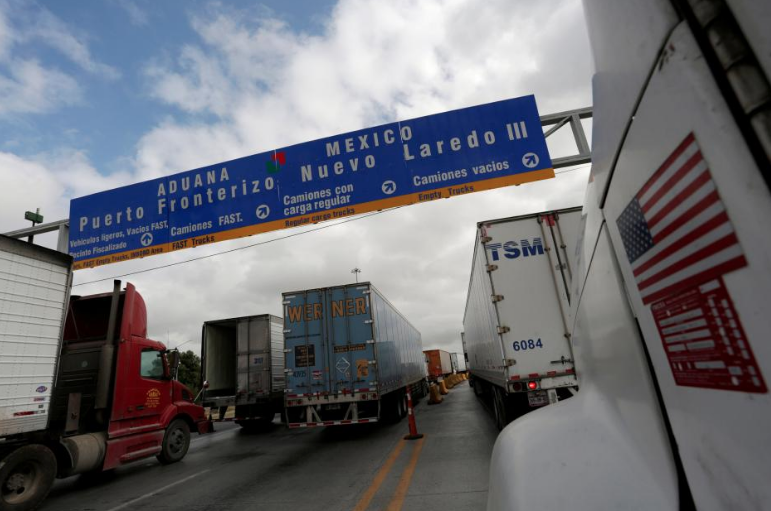Nafta talks resume as US warns ’short fuse’ risks burning down

Bloomberg | 15 November 2017
Nafta talks resume as US warns `short fuse’ risks burning down
By Josh Wingrove , Eric Martin and Andrew Mayeda
It’s back to the table time for Nafta negotiators after a month long breather in the talks, which broke up last time amid stark differences between the countries.
The fifth round of talks begins in Mexico City on Wednesday before chief negotiators from the U.S., Canada and Mexico arrive Friday for work that will continue through Nov. 21. At last month’s round, the parties extended talks through March, abandoning a December deadline, after the U.S. introduced its toughest proposals that were essentially rejected by Canada and Mexico.
The challenge remains to seal a deal before politics overwhelm the trade agenda next year when Mexico holds presidential elections and the U.S. has congressional midterms.
This coming session is expected to yield deals on smaller elements to modernize the 1994 accord, while negotiators aren’t expected to delve too deeply into the high-profile U.S. demands. Negotiators are working under the pressure of President Donald Trump’s repeated threats to pull out of the North American Free Trade Agreement.
U.S. Commerce Secretary Wilbur Ross said on Tuesday it “would be an enormously complex thing” to get a deal by early next year, though he expects “some sort” of agreement for Trump to consider. “Nafta is on a very short time fuse,” he said.
The Mood
Bombshell U.S. demands punctuated the fourth round of talks in Washington, sending the three ministers on their way after a closing statement that saw them exchange their strongest barbs yet.
With U.S. lawmakers focused on tax reform, expectations are that the key battleground issues will more or less be punted into 2018. There are still disputes — Mexico’s warning it could claw back cooperation with the U.S. on immigration, while Canada launched a legal challenge under Nafta just this week.
The most contentious U.S. demands are on dairy, automotive content, dispute panels, government procurement and a five-year sunset clause, but there are 28 negotiating areas in total. The tough proposals have been essentially rejected by Canada and Mexico, as all parties wait for the other to blink first. Ross stood his ground this week, saying “the idea of a five-year sunset has been part of the president’s thinking since the campaign.”
Mexican Economy Minister Ildefonso Guajardo said Tuesday that his team will ask the U.S. for more details on its proposal to increase the content requirement for cars that qualify for Nafta benefits to 85 percent from the region and to establish a 50 percent minimum for U.S. content. “One thing is to say it, another thing is to analyze the capacity of the industry to achieve it,” Guajardo said.
The Deliverables
Guajardo said negotiations for some chapters are very advanced, such as telecommunications and regulatory practices, and that several topics could be closed in this next round. Negotiators have already firmed up chapters covering competition rules and small- and medium-sized enterprises.
Ross expects the three countries will also eventually reach an agreement for new provisions on intellectual property rights. While adding extra rounds of talks has eased pressure on negotiators trying to overhaul the accord, any party can quit the pact with six-months’ notice.
For hyperlinks, see the article on its original page





